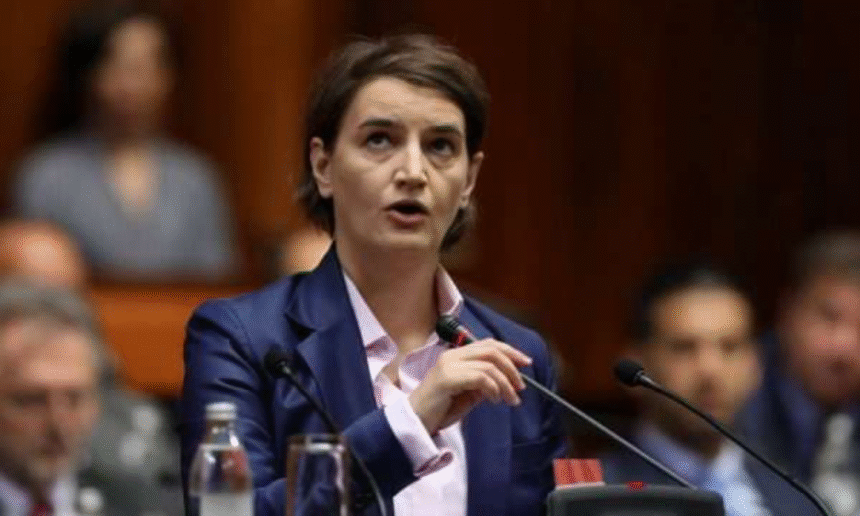Following Croatian Prime Minister Andrej Plenković’s statement in Slovenia that “Serbia is on the brink of civil war,” the President of the Serbian Assembly, Ana Bërnabić, responded on X (formerly Twitter).
Bërnabić dismissed Plenković’s warning, writing:
“Plenković says Serbia is on the brink of civil war. What else? They have invested so much in this. They know their strategic goal—that Aleksandar Vučić should not lead Serbia—can only be achieved this way. Fortunately for Serbia and the majority of its citizens, this is neither true nor will it happen. To paraphrase a song of ours—your money was wasted, my cousins, all Dinko and Mila’s… the cookbook ended up in the trash (literally).”
Notably, Bërnabić did not comment on Plenković’s reference to the terrorist attack in Banjskë, where police officer Afrim Bunjaku was killed.
Yesterday, during the Bled Strategic Forum, Plenković discussed the political situation in the Western Balkans and challenges in the EU enlargement process, mentioning both the Banjskë attack and the broader political instability in the region.
During a panel with the prime ministers of Slovenia, Albania, and Montenegro, Plenković highlighted the “harsh political reality” of the Western Balkans:
“Take Banjskë, which in 2023 passed without any serious notice or articulation from anyone in the EU, as if it never happened. This is the reality. We must be truly clear about enlargement and the changing global context.”
He also stated:
“You have North Macedonia, which is blocked. You have Serbia, with more than two years of serious internal unrest, demonstrations, on the brink of civil war.”
Plenković’s remarks underline the ongoing tensions and political challenges in Serbia, while Bërnabić’s selective response emphasizes Belgrade’s rejection of external narratives about internal instability, avoiding comment on the Banjskë attack altogether.







